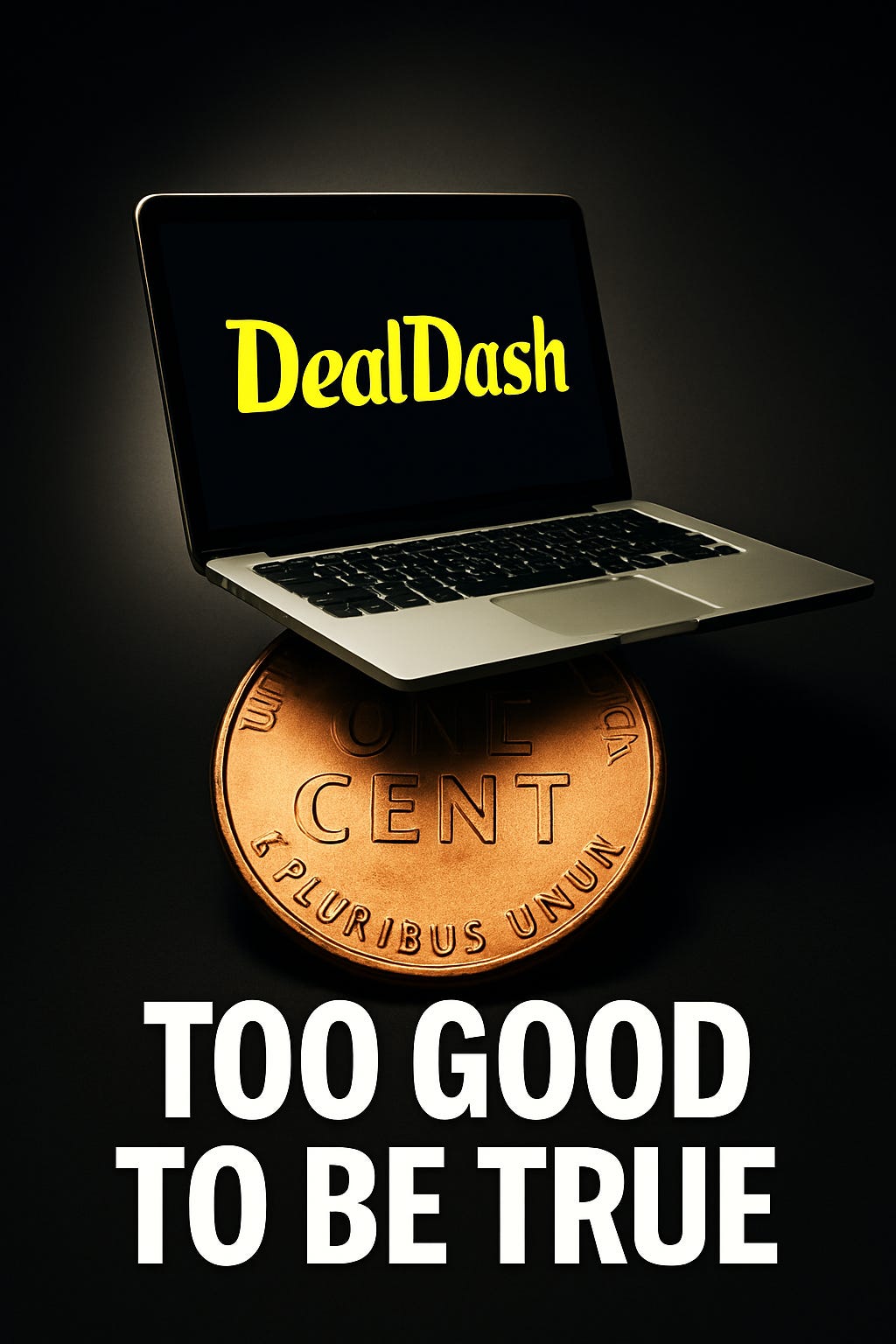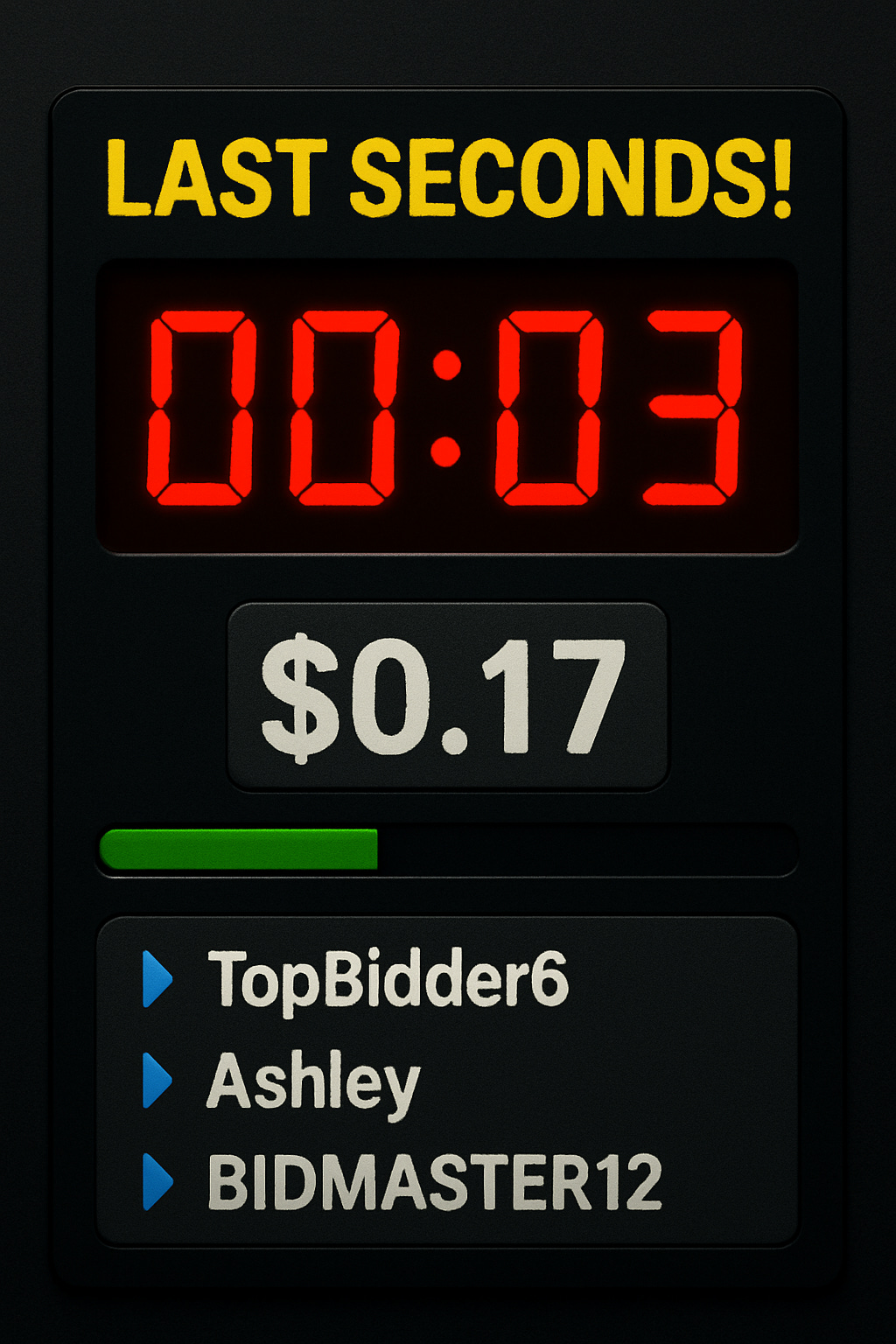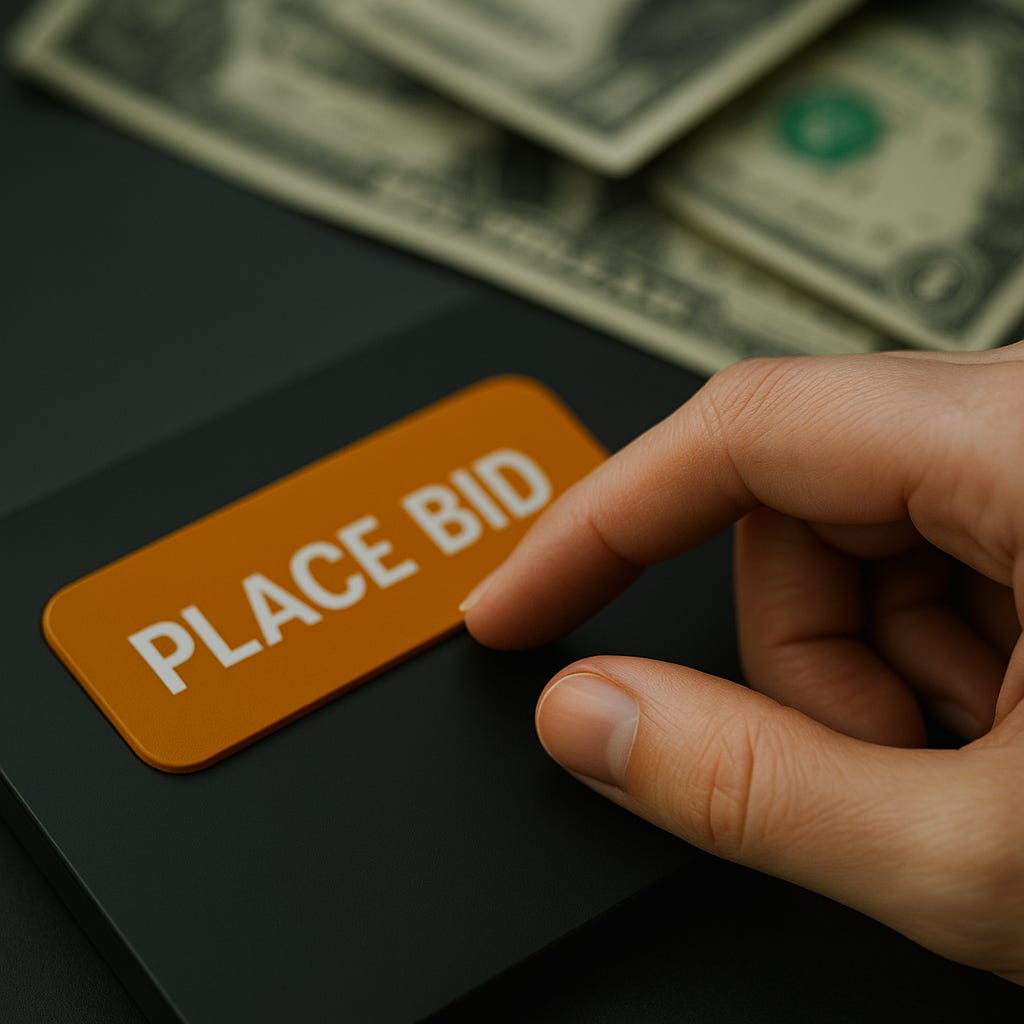DealDash: When “Too Good to Be True” Becomes the Business Model
Because sometimes the deal isn’t in your favor — it’s in theirs.
Not every piece I write is political. Sometimes I spot something so ridiculous that I feel compelled to share it. No agenda here — just an observation about the strange corners of modern life. DealDash caught my eye — and not in a good way.
I first noticed DealDash during one of those late-night TV ad marathons — the kind that sneak up on you when your defenses are low. A smiling woman was holding a $1,000 camera, gushing, *“I got this for $41!”* A man beamed about scoring a MacBook for $25, like it was just another day at the digital flea market.
Right then, my inner voice — the one hardened by years of “if it sounds too good to be true” moments — raised an eyebrow.
Curiosity got the better of me. I clicked over to their site, expecting maybe an eBay knockoff. Instead, it felt like a carnival game wrapped in retail packaging. Flashing timers, “just placed” bids flying across the screen, a highlight reel of “winners” — all carefully curated to keep you chasing the dream while losing sight of the cost.
DealDash doesn’t really advertise products — it advertises *hope*. Ordinary people smile into the camera, holding their bargain bounty, telling you you could win too.
What they don’t say? Each bid costs real money (around $0.60), bumps the price by a penny, and resets the timer by a few seconds. That $25 MacBook likely raked in thousands from eager bidders before one lucky person snagged it.
And the “Buy It Now” option? Sure, you can buy the item at full retail price and get your bids back. But that price often exceeds what you’d pay at Amazon or Best Buy. A safety net or just another part of the trap?
The Better Business Bureau has logged hundreds of complaints about DealDash, mostly from people who felt misled about the true cost of participation. On Trustpilot, you’ll find no shortage of frustration over burned cash and empty hands.
There was even a 2017 class action lawsuit accusing DealDash of running what amounted to an illegal lottery and selling knockoff brands under luxury labels. The case didn’t stick, but it sure left a mark.
Groups like Truth in Advertising continue to call them out for marketing practices that gloss over key details.
DealDash isn’t illegal. But legal doesn’t mean ethical. It’s a setup designed to prey on emotion — FOMO, sunk-cost fallacy, the thrill of “just one more bid.”
I didn’t place a single bid, and still felt like I needed a shower.🤣





